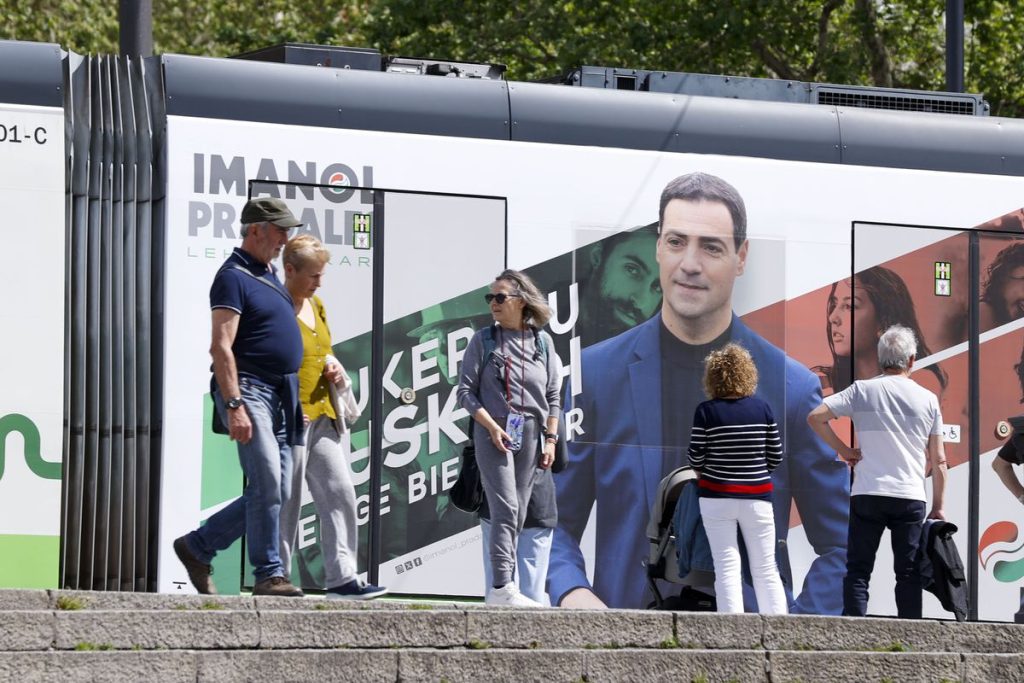Imanol Pradales, candidate for the PNV, chose the Plaza Circular in Bilbao on Tuesday to address the issue of public safety and promise “zero tolerance towards criminals”. This topic has become one of the main social concerns in the capital of Vizcaya in recent years. During the current campaign for the autonomous elections on April 21st, the debate on the Ertzaintza model has become a battleground between the PNV and EH Bildu. Pradales’ presence at this busy square did not disrupt the daily activities of the area, with only a few passersby showing interest in him. Known as the most recognized candidate among voters, alongside Eneko Andueza from the PSE, Pradales has gained visibility throughout the campaign.
Out of the seven candidates for lehendakari in the upcoming elections, only Miren Gorrotxategui from Podemos AV has previous experience, with the remainder being new candidates. The campaign for the current elections has faced challenges, with the candidates from the main parties declining to participate in the first televised debate on RTVE. The reasons given for this ranged from scheduling conflicts to the preference for a debate focusing solely on Basque issues. This decision has raised concerns among observers like Ramón Etxezarreta, who criticize the lack of visibility and transparency from the main candidates.
The presence of new candidates has led to a process of building and shaping their public profiles during the pre-campaign period. However, external factors such as the Easter holidays, unexpected elections in Catalonia, and significant events like the Athletic Bilbao victory and the passing of former lehendakari Ardanza have overshadowed the campaign. The lack of an election atmosphere, combined with the newness of the candidates, has affected their public image and engagement with voters. Despite these challenges, there is hope that the intensity of the campaign will increase in the coming weeks.
According to sociologist Jonatan García Rabadán, the remaining weeks of the campaign will likely see a shift in momentum and a higher level of engagement from the parties involved. The low turnout in the previous regional elections, which occurred during the pandemic, serves as a reminder for the parties to increase their efforts in promoting their candidates and policies. The newness of the candidates may offer an advantage in terms of avoiding negative perceptions associated with past administrations or party affiliations. As the campaign progresses, it is expected that the candidates will have more opportunities to connect with voters and showcase their platforms.
In conclusion, the current campaign for the Basque autonomous elections has faced challenges due to the presence of new candidates and external events that have diverted attention from the political process. The decisions of the main candidates to skip the first televised debate have raised concerns about transparency and visibility. Despite these obstacles, there is optimism that the campaign will gain momentum in the coming weeks, leading to increased engagement from the parties and voters. As the election date approaches, the candidates will have more opportunities to present their platforms and connect with the electorate.


